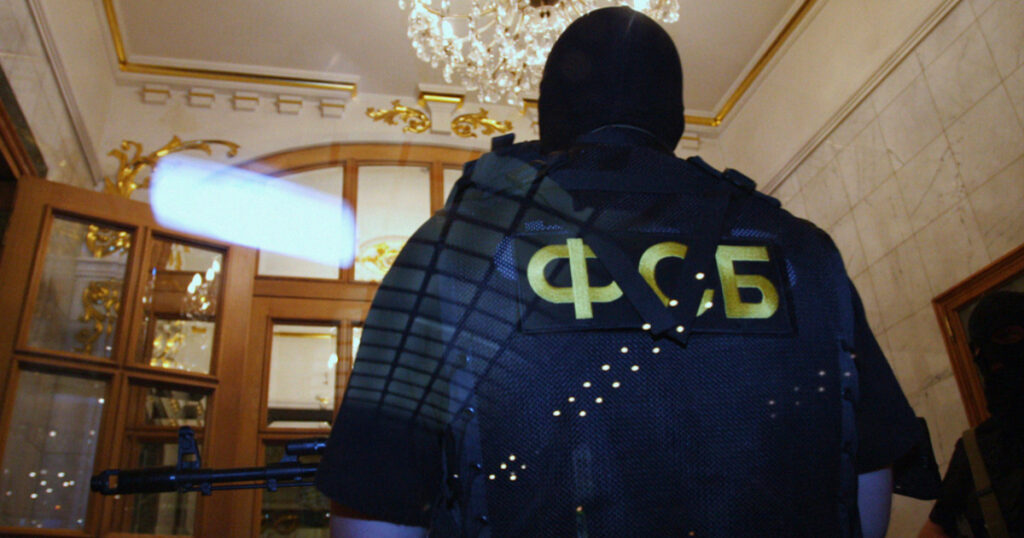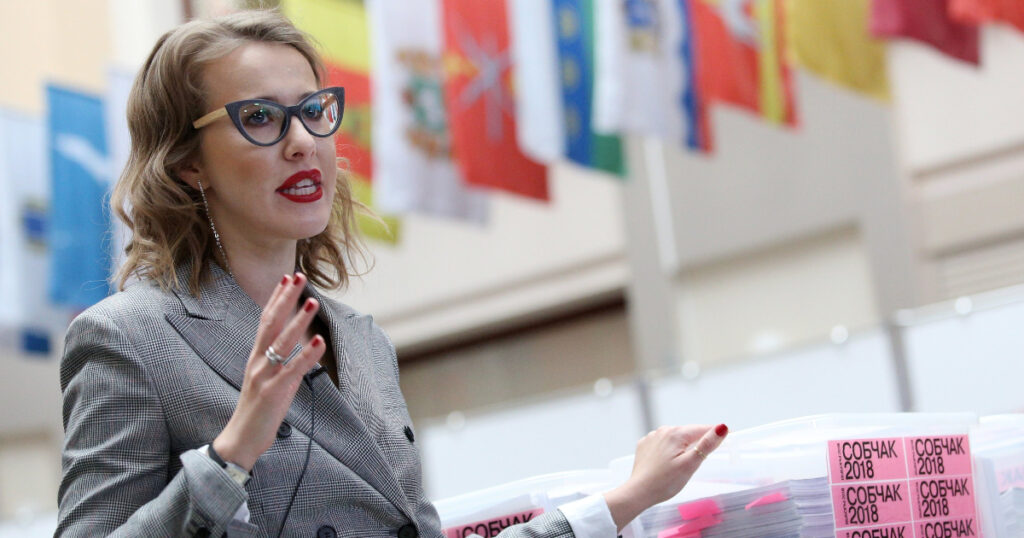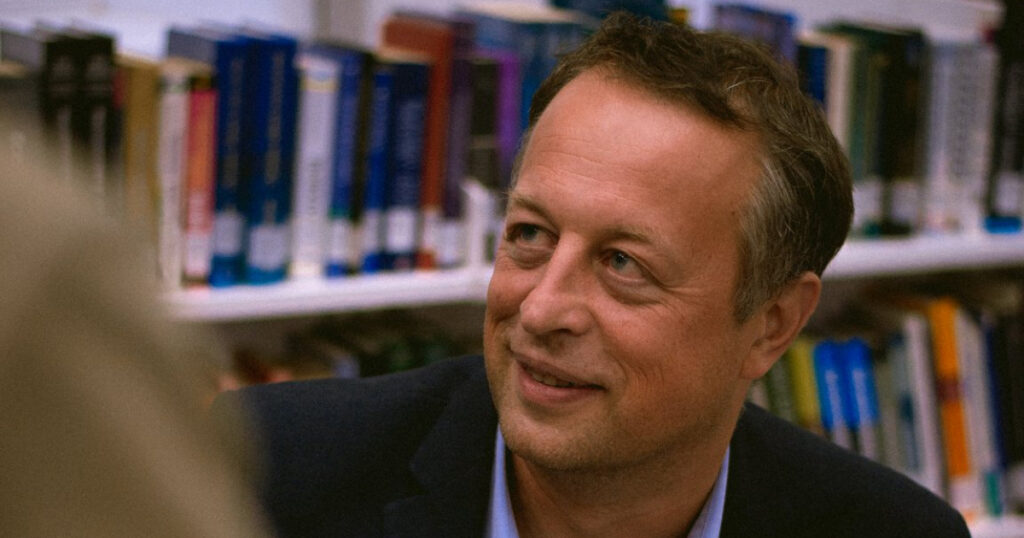
Telegram vs. FSB 0:1
Hello! This week our top story is the murky case of a popular Telegram channel that suddenly went silent amid rumours of an FSB sting. We also look at how coronavirus could hit economic growth, Ksenia Sobchak’s new show on state-owned television, the Belarusian sugar factory bosses who suddenly disappeared, and we have highlights from an interview with leading economist Konstantin Sonin.

Political channel on Telegram goes dark amid rumoured FSB raid
In the world of Russian politics, journalism and PR, anonymous channels on messaging app Telegram play a key role in spreading information — some false, some true, most of it libellous. So, when one of the most popular of these channels, Cello Cases (Futlyar ot violencheli), went silent last month, it was immediately noticed. Media outlet Baza reported Tuesday that Cello Cases was shut down by the Federal Security Service (FSB) following a raid on the apartment of a well-known expert in black PR.
- The last post by Cello Cases was the morning of 27 January. The channel, which has 412,000 subscribers, typically publishes compromising material (so-called kompromat) on politicians, businessmen, celebrities and other public figures — detailing criminal wrongdoing, corruption, or just revealing personal secrets. It is the sixth most-read channel on Russian Telegram, according to data from media monitor Medialogia. The name references cellist Sergei Roldugin, a close friend of President Vladimir Putin, who was accused in the 2016 Panama Papers of being a secret caretaker for Putin’s private wealth.
- There was no public information on what had happened to Cello Cases until Tuesday when Baza (known for its close connections to the security services) cited sources saying that the FSB searched the apartment of PR manager and media owner Alexander Gusov on 27 January and confiscated the SIM-card on which Cello Cases was registered. Contacted by journalists, Gusov denied he was the owner of Cello Cases, or that his apartment had been searched — and he provided media outlet Meduza with a detailed alibi (Rus). Either way, a source told The Bell that Gusov is a senior figure in the black PR market.
- Another version of events appeared on the popular blog (Rus) of Ilya Varlamov, who is known to accept payment for posts. Varlamov said Cello Cases had been recently sold for $2 million to a buyer who wanted to shut-down the channel.
- A final twist in this murky tale came Wednesday when Baza reported that Cello Cases was closed on the orders of recently-appointed Prime Minister Mikhail Mishustin. The Bell has been unable to confirm this, but many of the last posts on the channel revealed information about Mishustin’s friends and family. And Mishustin is known to be sensitive about his image.
- Platforms like Cello Cases are a part of a long political tradition of kompromat, which often also involves blackmail, theft and large sums of money (look no further than the story of hacking group Shaltai Boltai). The high-stakes nature of such games means those who practice them often attract political attention, and Telegram is no exception. Much has been written (for example this investigation) about how Kremlin officials brought certain influential Telegram channels to heel. The greatest irony, of course, is that Telegram has been banned in Russia since 2018 — but continues to be widely used despite efforts by the authorities to block it.
Why the world should care Battles over information flows in Russia are bitterly fought, and the story of Cello Cases demonstrates how much of this takes place behind-the-scenes. But Russian officials understand very well how propaganda and kompromat operate, and if Cello Cases has been shut-down permanently it likely threatened powerful interests.
A coronavirus epidemic could slow Russian GDP growth
The number of confirmed coronavirus cases in Russia has not risen since last week. Only two have been registered — both in Siberia. But there is a lot of concern: Russians are watching how the government is responding, and are well aware that nothing good awaits them if the outbreak grows. Some financial analysts claim (Rus) that, in the long run, the virus could even slow Russian economic growth.
- No-one knew what had happened to the two people in Russia diagnosed with coronavirus until one of them, Chinese citizen Wang Yongbin, complained (Rus) to the media. He said he and his family were undergoing blood tests twice a day and, after some back and forth, had been quarantined in a hospital. Shockingly, he only learned that he had coronavirus from the media — the doctors didn’t tell him. When his story went public, a local health official came to see him wearing a mask used by snowboarders. Yongbin later said that he was satisfied with the care provided.
- The 140 Russians evacuated by military planes from Wuhan province, the center of the outbreak in China, were in for a similar shock. They had no idea where they were being taken until the last minute — most thought they were heading to somewhere near Moscow, but they were delivered to a guarded sanatorium in Siberia. The journey took more than 12 hours, there was no heating on the plane, and they had to use a bucket behind a curtain as a toilet. Their quarantine will end in two weeks.
- Russia is feeling the economic consequences of coronavirus. There is a shortage of medical masks in regions near the Chinese border, and people are expecting garlic to disappear from stores — not only do Russians use garlic as a remedy for almost all diseases, but most garlic comes from China (the second largest supplier of vegetables to Russia after Belarus). Some large retail chains have even announced that they are preparing to stop selling Chinese vegetables. In European Russia, this is not a problem, but for the Far East it is a catastrophe. Vegetable prices in this area are already soaring: a kilogram of cucumbers now costs up to 400 rubles ($6.30), while a kilogram of tomatoes will set you back 700 rubles.
- The authorities have still not issued any official instructions for those who fear they are infected. Perhaps the only Russian who can feel safe is President Vladimir Putin: journalists accredited to events with him have recounted (Rus) how everyone meeting the Russian leader has to have their temperature checked.
Why the world should care So far, coronavirus has bypassed Russia: there have been just a handful of cases and neither the stock market nor the ruble have reacted. But Russia is clearly less prepared to fight the virus than China. If an epidemic unfolds, it could cause oil prices to fall and cut 0.3 percent from economic growth, according to predictions by Citibank analysts. This is not insignificant: in 2019 economic growth in Russia was just 1.3 percent.
Sobchak finally gets a show on state TV
It has taken 8 years, but Russian it-girl and former presidential candidate Ksenia Sobchak will finally return to mainstream Russian television next week. Sobchak, 38, who made her name as ‘Russia’s Paris Hilton’ will present a new, evening talk-show on state-owned Channel One, the television network said (Rus) Monday. Sobchak’s involvement with opposition activism during anti-Putin protests in 2011 and 2012 led to her being unable to find work on state-owned television, which is tightly controlled by the Kremlin.
- Little has been revealed about the new show, which is called Dok-Tok, but Sobchak said it will involve “thoughtful discussion”. It will air at 10:00 p.m. four times a week, Monday through Thursday. Sobchak will present alongside veteran TV presenter Alexander Gordon, who has worked on some of Channel One’s political talk-shows and in 2015 lost a libel case against a guest on his show who said he called her an idiot in the studio and insulted a victim of domestic violence.
- Sobchak was one of the most high-profile activists during a wave of anti-Putin protests in Moscow in 2011 and 2012 that followed widespread fraud during parliamentary elections. She briefly dated long-standing opposition activist Ilya Yashin, and even had her apartment searched by police. Later, she moved into journalism, working closely with liberal network TV Rain (Dozhd).

- But Sobchak has never looked entirely at ease in opposition circles. She retained close ties to the elite — her father, Anatoly Sobchak, was Putin’s political mentor in St. Petersburg in the 1990s, and her mother is a senator in Russia’s upper house of parliament. In 2018, she launched a presidential bid, which critics said was the result of a deal with the Kremlin (she came fourth with 1.7 percent of the vote). After the campaign, she had a public falling out with opposition leader Alexei Navalny and disappeared from frontline politics (she was notably absent from last summer’s opposition rallies in Moscow). In September, she married theater director Konstantin Bogomolov in a ceremony attended by officials including Putin’s spokesperson and Kremlin ideologue Vladislav Surkov.
Why the world should care Sobchak’s return to presenting for state-owned television network is a symbolic moment for the socialite, marking her return to the fold. It will win her no friends in opposition circles, and draws a line under her dalliance with independent journalism.
“We will continue to stagnate, nothing will change”. Highlights from an interview with economist Konstantin Sonin
One of Russia’s most famous economists, Konstantin Sonin has worked abroad for many years. He has been a professor at Chicago University since 2015, and before that he worked at two of Russia’s leading universities: the Higher School of Economics and the New Economic School. You can read the full interview in Russian here. Below, we have some highlights:
Does Russia have stability or stagnation? (GDP growth has been less than 3 percent since 2012 and real incomes are flatlining)
“Stability and stagnation are often the same thing. Stagnation means there is no risk of a sharp fall in the standard of living — no-one in Russia is angered by stagnation. In France, for example, voters don’t want stagnation, they want reform — just like the U.S. or Germany… But in Russia people are very calm about stagnation.”
Does Russia need a higher birth rate? (Natural population loss in 2019 was almost 260,000 people, and Putin has announced a raft of measures to boost the birth rate)
“Demography is not our most acute problem — you could even say it’s insignificant. It’s very stupid to worry over a 5 percent or 10 percent contraction in the population. You should be worrying about how to stop the emergence of a new Stalinism or another civil war… There are few examples of successful measures to boost the birth rate with material incentives. Instead, incentives mean people give birth earlier — not that there are more children in families. They simply bring forward the birth of the first child.”

Is Russia rich or poor? (13 percent of Russians live below the poverty line)
“If you measure by world standards, Russia is a poor country. We have high levels of inequality and most people don’t live well, or have any savings. But the government has a lot of money. People feel like the government doesn’t have enough money because it is spent very ineffectively.”
Will Putin eradicate poverty? (Putin has announced $15.6 billion of social handouts to the poor)
“When the battle against poverty consists of social handouts it’s not only not effective, but creates negative incentives for the labour market. You’re better off raising salaries for workers or increasing economic growth that will ‘lift the whole boat’ like in the 2000s. At the same time as the battle with poverty, there are powerful forces at work in the country creating poverty. For example, the counter-sanctions [a ban on imports of food products from most Western countries] simply take away money from ordinary people and re-distribute it to large agricultural companies.”
What will happen with the economy? (Putin wants a minimum of 3 percent economic growth per year, but in 2019 economic growth was only 1.3 percent)
“Russia has such an isolationist stance, spends so much money on unnecessary things and places so many limits on the economy that you could achieve a minimum of 3-5 percent growth a year simply by removing these restrictions and getting rid of corrupt politicians… If this doesn’t happen, Russia will continue to stagnate, nothing will change.”
IN BRIEF
Belarus and the missing sugar factory bosses
At the end of last month, the heads of all four of the biggest sugar factories in Belarus mysteriously disappeared. After a couple of days, one of them appeared on a plane traveling from the Belarusian capital to Munich — but the plane was forced to turn around in the skies above Poland, and made an emergency landing in the Belarusian city of Grodno. When on the ground, the plane was entered by uniformed men, who removed several people, including one of the factory directors. Belarusian President Alexander Lukashenko this week finally explained what had happened. Apparently, he ordered the Belarusian security services to stop the plane because all sugar factory bosses are suspected of taking bribes to sell sugar to Russia at lower prices (90 percent of all sugar produced in Belarus is sold to Russia). According to Lukashenko, all the detainees have confessed. “They were not bullied or beaten, their fingers were not slammed in doors. They were just told to tell the truth and they confessed,” Lukashenko said. The punishments for the directors have yet to be determined, and Lukashenko said more details of their crime will be made public soon.




